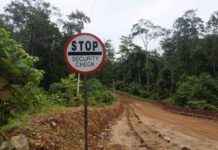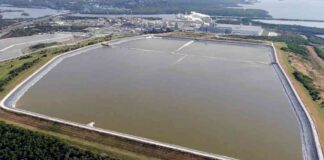Colorado Activists Rally Against Drilling: Oil and Gas Operators Respond
A recent decision by Colorado state regulators has sparked a wave of activism from Denver-area groups opposed to oil and gas drilling near their suburban neighborhoods. The Colorado Energy & Carbon Management Commission made headlines in November when it rejected a proposal by Extraction Oil & Gas Inc. to build a 26-well oil operation called the Draco pad in Weld County. This decision was a significant win for community organizations that have been advocating for more stringent regulations on fossil fuel developments in residential areas.
In early January, the Commission also denied an application by a smaller operator for a 20-well pad project known as the Secret Stash. This project, located southeast of Denver, was set to be drilled on a former bombing range, raising concerns about its proximity to residential areas. Both of these proposed developments would have been less than a mile from rapidly growing suburbs surrounding the state capital, prompting residents to voice their opposition.
Randy Willard, a long-time resident of Aurora, emphasized the need for thorough research and consideration before approving such projects. His testimony at the hearing on the Secret Stash pad highlighted the potential environmental and health impacts of these drilling operations on local communities. Willard’s concerns were echoed by members of Save the Aurora Reservoir, a grassroots group dedicated to protecting neighborhoods from the harmful effects of oil and gas extraction.
The decisions to halt these drilling projects underscored the challenges faced by energy companies as they attempt to tap into lucrative shale deposits near residential areas. Recent legislation in Colorado prioritizes health, safety, and environmental concerns over industry profits, giving regulators more authority to oversee the impact of drilling operations. These new rules require energy companies to provide detailed information on how their projects affect traffic, air quality, and water usage, giving communities a stronger voice in the decision-making process.
The regulatory environment in Colorado has shifted dramatically in favor of residents, causing oil and gas companies to reassess their operations in the state. Civitas Resources Inc., the parent company of Extraction Oil & Gas, is reportedly exploring the sale of assets in the Denver-Julesburg basin due to market uncertainties. Industry analysts suggest that investor reluctance to engage with Colorado-focused companies is impacting the valuation of these businesses, leading to potential divestment strategies.
The concerns raised by state regulators regarding the Secret Stash and Draco projects focused on the lack of clarity and detailed information from the operators. Questions about the number of wells, truck trips, and air emissions associated with these projects remained unanswered, prompting the Commission to request further clarification. This push for transparency and accountability reflects a broader shift towards more rigorous oversight of oil and gas activities in the state.
GMT Exploration Co. LLC, the company behind the Secret Stash project, faced scrutiny over its plans to drill on the former bombing range. While the company initially proposed a smaller number of wells to assess production potential, regulators requested a more comprehensive analysis of the project’s environmental impact. The need for detailed information on air, water, and other effects of drilling operations highlights the growing emphasis on responsible energy development in Colorado.
In Erie, Extraction Oil & Gas was directed to consider an alternative site for the Draco pad due to concerns about the original location’s proximity to residential areas. The Commission’s decision to require a full analysis of the Redtail Ranch site reflects a commitment to protecting communities from the potential risks of oil and gas drilling. While residents expressed mixed reactions to the ruling, many remain vigilant in opposing projects that could endanger their health and safety.
The jurisdictional complexities surrounding the Draco pad proposal underscore the challenges of aligning local regulations with state priorities. The conflicting setback requirements between Weld County and the town of Erie have created a legal and logistical quagmire for energy companies seeking to expand operations in the region. The need for clear guidelines and community input in siting decisions is crucial to ensuring responsible energy development in Colorado.
As residents and activists continue to push for greater transparency and accountability in the oil and gas industry, the future of drilling projects in Colorado remains uncertain. The growing momentum of grassroots movements and community organizations signals a shift towards more sustainable and equitable energy practices in the state. By amplifying the voices of those most affected by drilling operations, Colorado is setting a precedent for responsible resource management and community engagement.
The ongoing debate over oil and gas drilling in Colorado highlights the complex interplay between industry interests, regulatory oversight, and community activism. As residents and policymakers navigate these challenges, the need for collaboration and dialogue becomes increasingly important. By fostering a culture of transparency and accountability, Colorado can pave the way for a more sustainable and equitable energy future for all its residents.














